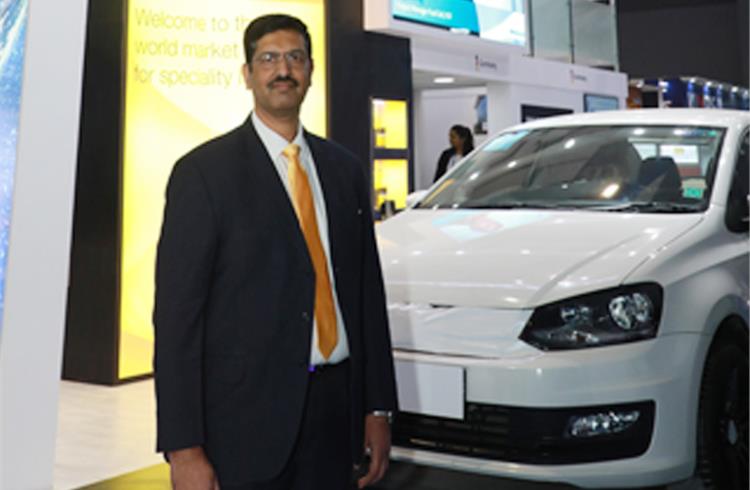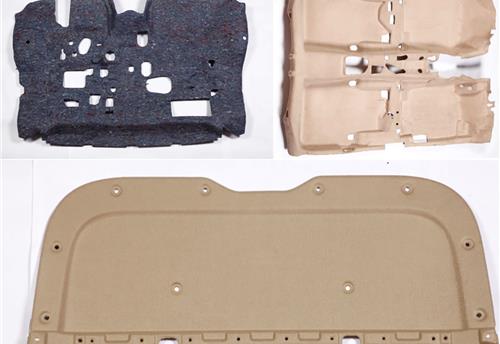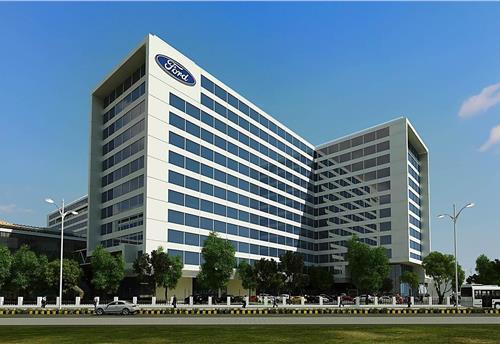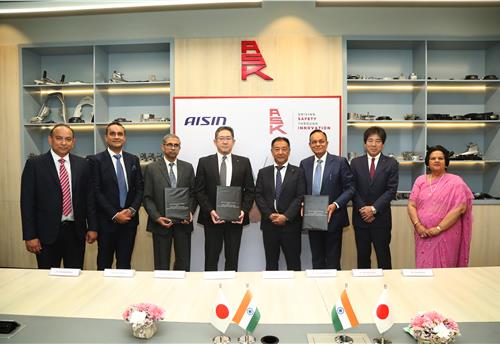Kluber Lubrication launches specialty lubes for EVs, EPB at Auto Expo
Specialty lubricants can help extend and enhance EV battery performance, improve efficiency of the electric parking brake, optimise brake booster performance and ensure reliable performance of actuators.
Kluber Lubrication, a part of the Freudenberg Group, used the platform of the Auto Expo 2020 - Components at Pragati Maidan to introduce a series of lubricants for electric vehicles (EVs).
Kluber Lubrication, a part of the Freudenberg Group, used the platform of the Auto Expo 2020 - Components at Pragati Maidan to introduce a series of lubricants for electric vehicles (EVs). The company says these specialty lubricants can help extend and enhance EV battery performance, improve efficiency of the parking brake, optimise brake booster performance and ensure reliable performance of actuators at temperatures ranging from at -65deg C to 200deg C, thereby ensuring efficient output.
Speaking to Autocar Professional, Hitendra Bhargava, CEO, Kluber Lubrication, these lubricants are unique and developed after extensive research and development in India.
E-lubes good for electric parking brake system
According to company officials, lubricants are an integral part of electric parking brake (EPB) system. With comfort and efficiency being a key focus for automobiles, brake-by-cable parking brakes are giving way to electric parking brakes. With this shift in the parking brake system, there is more space in the cabin to accommodate new features and the effort of parking has also reduced drastically. This change in technology also calls for new lubrication requirements of the components in the parking brake system.
"We are very happy to be one the first movers in the industry to have successfully solved the lubrication requirements for electric parking brakes. We have not only met the lubrication requirements but also successfully passed the lifetime requirement of such a critical component in the car," said Bhargava.
Electric brake booster
The brake booster is one of the most important systems in a vehicle, which ensures effortless application of brakes in a vehicle. Until recently, the majority of brake boosters used the vacuum generated by the internal combustion engine’s intake section to operate. With new engine technologies (electric vehicles or fuel cell technology) there is no engine and hence the vacuum produced by the engine is no longer available. This has led to the development of the electric brake booster. For the effective and efficient operation of electric brake booster, lubricants are an integral part of the design.
"Solving the lubrication requirements of an electric brake booster was an uphill task; the OEM's were testing new material compositions and the initial lubrication concepts were failing. The concept of Klubersynth RG 86-121 evolved from extensive research and testing," added Bhargava.
CV joints for EVs
The lubrication requirements of Constant Velocity (CV) joints in an electric vehicle are quite different to those of the CV joint in an IC engine vehicle. The CV joints in an electric vehicle have to operate with higher initial torque being provided by the electric motor. This leads the CV joint to be subjected to higher wear during the starting phase itself, as lubricant may not be available at the mating surfaces during the start of the vehicle. This has been a challenge for the grease in CV joints due to the higher load and herewith the potential higher operating temperature. Those new requirements are asking for greases with better load capacity and lowest friction as possible. The earlier generation lubricants used for the design of the CV joint are not able to meet the higher torque operating conditions. This has led to higher temperatures, oil leakage from the grease and higher evaporation of the grease in the CV joint. These adverse operating conditions have even lead to the CV joint boot to blow up during operation.
Kluber Lubrication claims that it has developed and successfully implemented the Klubersynth HE 74-81 as the right solution for CV joints even for EVs. This specially engineered fully synthetic grease comes with a special polyurea thickener which ensures that the lubricant provides excellent lubrication property. This grease also provides excellent false brinelling property which also ensures that the CV joint do not undergo wear during vehicle on vehicle transport or during drives on straight roads.
Reliability of actuators for liquid cooling system in electric vehicle increased
With the evolution of electric cars, the battery unit in these cars needs to be maintained at optimal temperatures at all times, to ensure longer battery life, efficient charging and longer operating miles. Most EV manufacturers are looking at cooling liquids as the viable solution to operate battery packs at optimal temperatures.
For the efficient cooling of the battery packs, most of the designs incorporate actuators, which control the flow of the cooling liquids around the battery. These actuators need to have high reliability to ensure that the cooling liquid operate as per the designed flow algorithm. Some of the advanced designs even incorporate more than 5 actuators in a single cooling system control.
Lubricants play a pivotal role in the reliable operation of these actuators. The gears and other critical components inside these actuators need to be lubricated well, even when exposed to varying temperatures. These actuators need to operate at -40deg C during peak winters and also operate at temperatures close to 150deg C, as the battery packs can reach very high temperatures during operation. The lubricant used for these actuators also need to work under these extreme temperatures and provide excellent lubrication properties.
Another major challenge for the lubrication of the actuators is the compatibility with the different plastic and non-ferrous materials being used in the actuators. Generally available lubricants either swell or shrink these plastic and non-ferrous components, creating structural damage to actuators over a period of time.
Kluber Lubrication claims that it provided a specially engineered PFPE/PTFE-grease as the lubrication solution. This grease can operate at -65deg C to 200d C and at the same time provide excellent material compatibility.
RELATED ARTICLES
Uniproducts India targets 15% growth till FY2027, eyes new EV OEMs for NVH parts
The Noida-headquartered company, which is a leading manufacturer of roof liners, floor carpets, sound insulation materia...
Ford to build more EV software capability at Chennai tech hub
Ford Business Solutions India, which currently employs 12,000 personnel set to add 3,000 more; Ford, which is known to b...
ASK Automotive to set up JV with Aisin to sell aftermarket parts for cars
Ask Automotive will have 51% of the equity of the joint venture to be set up with Aisin Asia (Thailand) Company and Aisi...





 07 Feb 2020
07 Feb 2020
 14301 Views
14301 Views





 Autocar Pro News Desk
Autocar Pro News Desk




